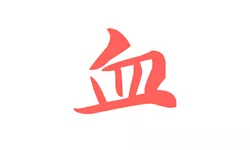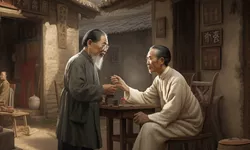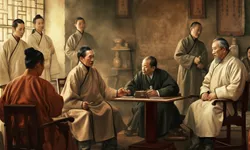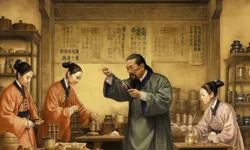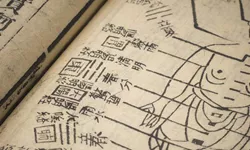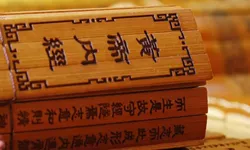Traditional Chinese Medicine represents a vast body of healing knowledge that dates back several millennia. In fact the root of Chinese Medicine can be traced as far back as the Shang Dynasty in 14th century BCE. That was 1300 years before the start of the Roman Empire! The vast knowledge of Chinese medicine has been built over time with practitioners learning the discipline from previous texts before adding their own contributions. Interestingly, some of the legendary founders of China are also considered some of the most famous Chinese doctors in history. For instance one of the founding texts in Chinese medicine, the Huangdi Neijing, is attributed to the mythical Yellow Emperor, Huangdi. Similarly another founding book, The Classic of Herbal Medicine, was according to legend written by mythical emperor Shennong. Both Huangdi and Shennong are today revered as deities in Chinese religion. This goes to show the extreme importance of Chinese Medicine in the culture. If one was to make a comparison with Western culture, it is as if Moses and Jesus had not left us with their teachings in the Bible but with medical treaties.
To this day, Traditional Chinese Medicine is still extremely prevalent in China. Just as Western people are accustomed to using a multitude of over-the-counter drugs for various conditions, the Chinese are very familiar with the use of a variety of herbs or other healing methods such as acupuncture. Chinese Medicine concepts are still deeply ingrained in the culture in China. It dictates in large parts what people eat, how they dress or the physical activities they exert. For instance after giving birth millions of Chinese women follow the guidelines of Yuezi. Yuezi is a very codified Chinese Medicine tradition that defines a set of diet and lifestyle restrictions during 42 days after birth. As a more anecdotal example Chinese people are often horrified when they see a baby without socks, even during a particularly hot summer, because they believe the soles of feet are particularly sensitive to cold invasion (a so-called "Yin evil"). As such it is not uncommon to see babies wear nothing but a diaper and socks in the summer heat!
In a nutshell Chinese Medicine views diseases in terms of a general imbalance within the human body and between the body and its external environment. This is different from Western medicine that often views the cause of a disease as something that can be isolated (e.g. "You have a depression because of a chemical imbalance in your brain"). For instance a Chinese Medicine practitioner might explain a disease by stating that you have "not enough Yin" or "too much Yang" in your body and that refers to a general disharmony affecting most of your organs. The remedy is often not only a mix of traditional herbs but also a change in your behavior such as what you eat, the amount of sleep you get or the physical activities you exert. As such it has a much more holistic approach than Western medicine and it can often be more successful in treating certain forms of diseases, particularly chronic ones.
The theories of Traditional Chinese Medicine derive from a general explanation of the world in Chinese tradition, namely the Yin-Yang concept, the concept of Qi and the Five Phases theory.
Yin-Yang (阴阳)

The famous Yin-Yang symbol
According to the Yin-Yang concept, nothing can exist in the universe unless it has an opposing component. For instance sadness has no meaning without joy. Or the sky without earth. Or light without darkness. The Yin-Yang theory is embodied in every aspect of Chinese medicine. Organs, diseases, the ingredients one eats or the medications one takes are either Yin or Yang in nature. A disease can pretty much always be ultimately traced back to an imbalance of Yin and Yang and the cure will pretty much always be about restoring the harmony. For instance if a patient has a fever and sweats a lot he has an excess of fire which is Yang in nature. This will need to be rectified with a Yang-tempering treatment.
Read our dedicated article on the Yin-Yang theory.
Qi (气)
The concept of Qi is also fundamental in the Chinese explanation of the world. Qi is often translated as "energy" but it is much more than that. Qi the fundamental substance that enables all things in the universe to maintain their cohesiveness and to constantly transform. In the context of Chinese Medicine, Qi has many functions in the human body. Qi is what powers all movements in the broadest sense of the term: not only the movement of the limbs but also body growth or the aging process. Qi is also what protects the body against pathological agents or what transforms the food we ingest into other substances such as blood, sweat or even thoughts. Each organ has its own Qi: for instance one is said to have a "Defective Kidney Qi" if one has trouble regulating water. Like all things, Qi is generated by the balance between Yin and Yang. It is categorized as a Yang texture so if one has a deficient Qi it is a condition where one has too much Yin with respect to the Yang.
The Five Phases (五行) theory

A representation of the Five Phases theory in Chinese Medicine
The Five Phases theory is closely related to the Yin-Yang concept. It states that all matter in the universe is in either one of five phases: Fire, Earth, Metal, Water or Wood. Each phase doesn't exist in isolation but in a relationship with the others. For instance Water nourishes Wood and Wood nourishes Fire. On the other hand Water suppresses Fire. All matter inside the human body can be classified in either one of the five phases. For instance our Kidneys are Water and they nourish our Liver, in a Wood phase, but suppress our Hearts, in a Fire phase. The Five Phases theory leads Chinese Medicine to look at diseases in terms of how the elements involved influence each others. To understand an issue with the Liver, like a Defective Liver Qi, a Chinese doctor would therefore probably try to understand whether there isn't also an issue in the Kidney (made of Water and therefore nourishing the Wood of the Liver). Again, like all things in Chinese Medicine, it's a question of harmony of the whole.
Read our dedicated article on the Five Phases theory.
There is of course much more to Chinese Medicine than this brief introduction. For instance there's the concept of the Zang-Fu organs, the organs in our bodies as described by Chinese Medicine. Or the concept of Meridians, the channels through which Qi flows in our bodies. Chinese Medicine is an extensive discipline that simply cannot be explained extensively in an article. There are thousands of books and studies on the subject, written over more than 3,000 years!
Does it work?
We'll close this article with a simple question: does it work? That very question was asked in the 1950s, a decade of deep transformations during which most of China's old cultural tenets where questioned (and many abolished!). During that time the Chinese government performed thousands of experiments and clinical studies on the effectiveness of Traditional Chinese Medicine. Their conclusion was incontrovertible: Traditional Chinese Medicine does work clinically. It was developed under a theory that is very different from modern medicine and it lacks the rigor of modern scientific methods. But it is undeniable that it successfully treats millions of Chinese every year for an enormous number of conditions and has done so for millennia. And the proofs keep coming: as recently as 2015 Tu Youyou, a Chinese pharmaceutical chemist, received the Nobel Prize in Medicine for extracting artemisinin, the active principle behind qinghao (sweet wormwood), a traditional Chinese medicine. Artemisinin is widely recognized today as the best treatment against malaria and the medicine has saved millions of lives.
Today, a form of partnership has arisen in China between modern medicine and Traditional Chinese Medicine. For the many conditions where modern medicine doesn't have satisfying answers, the Chinese will resort to Traditional Chinese Medicine. The opposite is true as well: for conditions that are successfully treated by modern medicine, especially those involving surgery or high-tech equipment, the Chinese prefer modern medicine. This is, beautifully, a very Chinese outcome: a balanced harmony.
![]()
Sources:
Ted J. Kaptchuk (1983). The Web That Has No Weaver: Understanding Chinese Medicine. Chicago, Il., U.S.A.: Congdon & Weed.
Ko, Robert. Health Concepts in Chinese Medicine [PDF documents and videos]. Retrieved from The Hong Kong University of Science and Technology on Coursera: https://www.coursera.org/learn/health-concepts-chinese-medicine
Traditional Chinese Medicine. (n.d.). In Wikipedia. Retrieved April 14, 2008, from https://en.wikipedia.org/wiki/Traditional_Chinese_medicine
Article tags: Chinese Medicine theory

